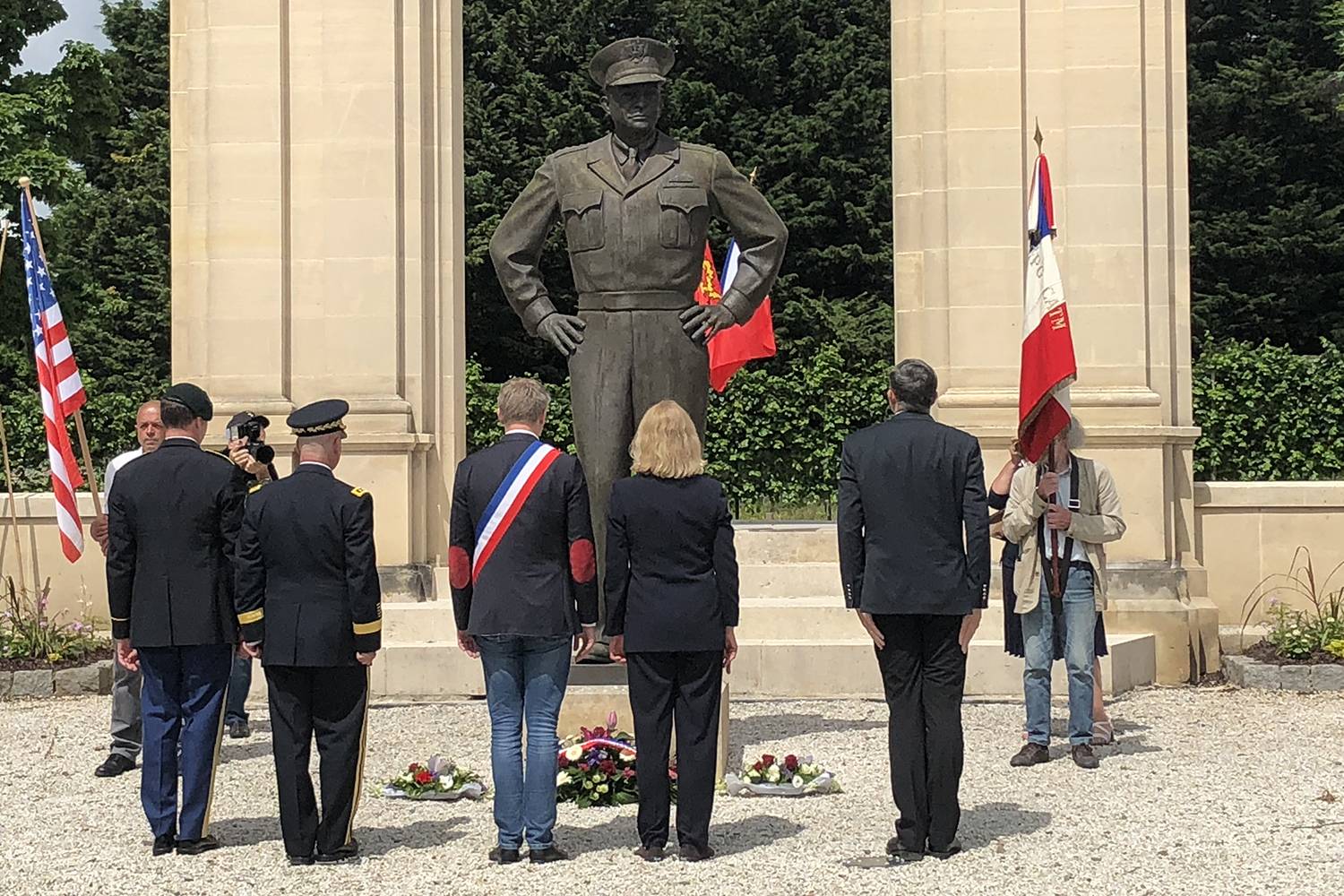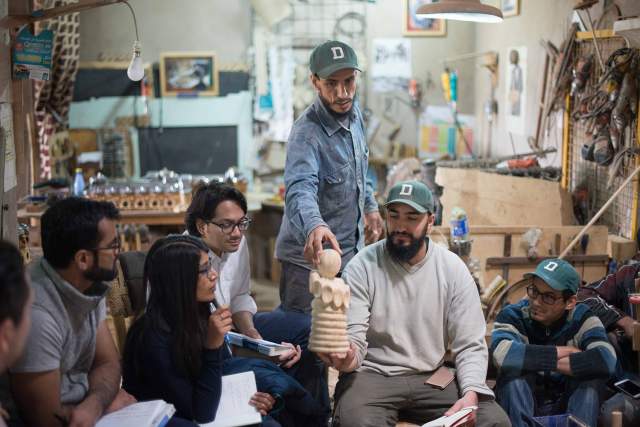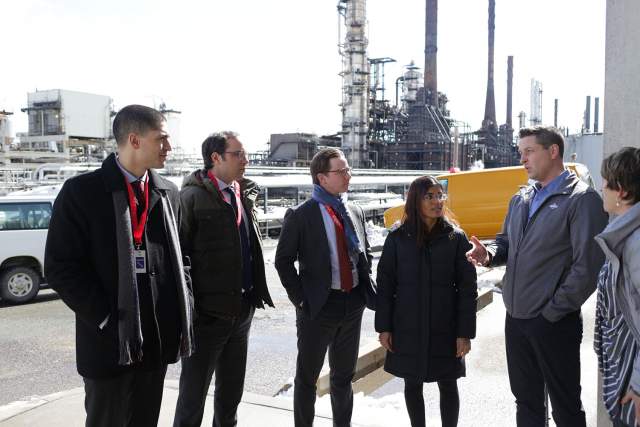A First-Year Project that Honors ‘First at Normandy’
For their First-Year Project, five Tuck students worked with the Normandy Institute to cultivate a vision for the future.

Over spring break, five T’19s traveled to The Normandy Institute in France.
When Travis Cyphers, a T’19 and U.S. Army Officer, saw that The Normandy Institute needed help with its mission, he immediately threw his hat into the ring. It was a First-Year Project that felt like kismet.
“My first unit as an officer was with the second battalion of the 8th Infantry Regiment,” Cyphers says. “That regiment was the first group of soldiers to go ashore at Utah Beach in 1944. Our motto was literally, ‘First at Normandy.’ As an Army officer, the opportunity to go back and see that region has been a bucket list item for me.”
The Normandy Institute was recommended as a First-Year Project to Tuck by Richard “Dick” Schmitt, T’69, who also has experience serving in the military, having been stationed as an Army lieutenant in Germany. These projects are required courses that give first-year students the opportunity to apply classroom learning to complex business challenges for real clients.
Over spring break, Cyphers and four other T’19s—Steven Drake, Elyse Rich, Sam Humbert, and Elizabeth Jimenez—traveled to The Normandy Institute in France. They met with Dorothea de La Houssaye, the founder and director of the Normandy Institute, and discussed the organization’s goals: To provide an institute that helps shape our understanding of strategic alliances, history, and complex global issues through the lens of the Normandy landings.
Getting a history lesson, the team spent several days touring Normandy, from Omaha Beach to La Fière Bridge, to learn why the institute’s location near the airborne drop zone was a huge asset for what they wanted to accomplish. The Tuckies took an in-depth look around the institute’s sprawling grounds—a chateaux, conservatory and other historical buildings—to learn about renovation efforts.
Before presenting some initial findings to the institute, the team huddled together for seven hours and sticky-noted an entire wall, working together with such collaboration that Cyphers said it’s “the closest thing I’ve seen to the relationships you build in the military.”
After presenting their ideas, the team returned to Hanover with specific agreed-upon deliverables. They hit the ground running and conducted extensive research to figure out how the institute could specifically target alumni, executives, undergrad and graduate students.
“We were able to give the institute a good understanding of what the market is when talking to universities,” Cyphers says. To do so, they used marketing analysis, financial modeling and other skills they learned in the classroom, which helped the institute define and understand its value proposition.
Cyphers and Humbert traveled to Washington, D.C. to deliver a mid-point presentation to two institute team members and Dick Schmitt, and then the entire team gave its final presentation remotely, which included a report on their findings and a strategy for implementation. They also provided a pitch deck that the institute could rely on when approaching universities.
Cyphers also had a rare opportunity to return to France one final time—for the 74th anniversary of the Normandy invasion. While there, he attended an invitation-only banquet, where he sat with eight World War II veterans and talked about their experiences. A few days before the anniversary on June 6th, Cyphers attended a private ceremony with the granddaughter of General Eisenhower, the supreme commander of Allied forces in Western Europe during the war.
“It was an opportunity in my life that I never would have had the chance to see, had it not been for this project,” he says. “The potential impact that could come out of a project like this, with a mission I have a passion for, is beyond anything I could have hoped for in my MBA experience. It’s been incredible.”
After graduation, Cyphers will be teaching at West Point, and he will rely on the invaluable experiential learning he gained with his First-Year Project.
“As an active-duty soldier, I wanted real-world business experience that I could take into the classroom,” Cyphers says. “I’ve commanded soldiers, led troops in Afghanistan, and have lots of expertise in the Army, but I was far from an expert when it came to this project. Yet I was still able to provide purpose and momentum to the team and together we delivered a valuable outcome for the Normandy Institute.”

